What Will History Make of Colin Powell?
Public figures understandably fuss over their reputations and how they will be remembered. Recent news brought to mind two prominent figures of their moment: Colin Powell and Robert McNamara.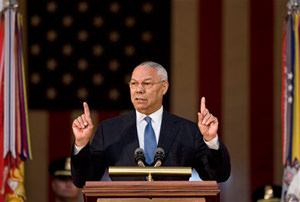
The Moving Finger writes; and, having writ, Moves on.
— The Rubaiyat of Omar Khayyam
How do we remember history? Time diminishes our memories of details and spear carriers. Thirty-five years ago, as Richard Nixon prepared to resign, we readily recited the real-life cast of all the president’s men: Haldeman, Ehrlichman, Mitchell, Dean, Kleindienst, Colson, Liddy and Agnew. Today, memory of them has all but vanished, except for the few still active in the public arena.
From the Vietnam War, do we remember Gen. William Westmoreland, or do we remember the ironic incantation of “light at the end of the tunnel”? South Vietnam’s Gen. Nguyen Van Thieu rests in the ashcan of history. Khe Sanh and Hue are half-century-ago battles now reserved for military buffs; more prominent in today’s memory banks are our recognition of and trade with Vietnam.
How history plays out is, however, a very real concern for key players. Nixon campaigned for history, beginning with his teary White House farewell on Aug. 9, 1973, and continuing through two decades, with a number of books, carefully calibrated appearances and meetings with prominent leaders at home and abroad. He struggled mightily to turn the public loathing of him into admiration for his achievements. He had virtually nothing to say about Watergate; fortunately, he left an enduring gift of his thoughts and words on tape. He was the greatest self-bugger of all.
Public figures understandably fuss over their reputations and how they will be remembered. Recent news brought to mind memories of two prominent figures of their moment: Colin Powell and Robert McNamara.
Powell certainly is very conscious of his historical reputation. He said on CNN last Sunday that “history” will have to decide whether George W. Bush’s decision to make war in Iraq was correct. Like the former president, he presents a formidable example of history by amnesia. “A dictator is gone, a despicable regime is gone, the Iraqi people have been given a chance to have a representative form of government living in peace with its neighbors,” Powell said.
If “history” will decide whether Bush (with Powell) made the correct decision, then we have to confront a factual reality. Surely, Gen. Powell knows that he participated in an unprovoked war of aggression, resulting in the deaths of over 4,000 U.S. combatants and countless Iraqis. He knows that his United Nations speech describing Saddam Hussein’s menacing weapons of mass destruction was utterly fictitious, concocted in the White House and Defense Department. Powell undoubtedly has the excuse that he was handed a script full of errors, lies and poor judgments. He always has been the “good soldier.” Ironically, he was chosen for the U.N. performance for his credibility, not to mention his loyalty. President Bush, ably seconded by Vice President Dick Cheney, soon launched the “shock and awe” bombing of Baghdad. They quickly marginalized Powell, but he loyally stayed for slightly more than a year and a half.
Powell favors history by omission. His and Bush’s rationale rests on proven lies and factual inventions. In his recent TV appearance Powell offered his judgment of the Iraq war, minus the fact of its undeniably dubious raison d’être. Silent on that fact, Powell proceeded to the standard interpretation for Bush and his followers.
That we lied, that we misrepresented the actual facts — that Condoleezza Rice warned of a mushroom cloud over us if we failed to act against Saddam Hussein — are facts easily discarded or ignored. Powell’s interpretation simply forgets that an unnecessarily provoked war brought needless sacrifices of lives and treasures. We can hope that future historians will use all the facts.
Robert McNamara died in the same week that Powell tried to rewrite history. McNamara loyally served John F. Kennedy and Lyndon B. Johnson. For both, he was the principal architect and desk officer of the Vietnam War and, for six years at least, the most vocal advocate of victory through a military solution. (McGeorge Bundy and Walt Whitman Rostow helped with the heavy lifting.) His public utterances, too, promised “light at the end of the tunnel.”
For an earlier event, the Cuban missile crisis in 1962, McNamara labored mightily to influence our understanding of that history, claiming he helped Kennedy forge a peaceful resolution. But the tapes do not lie: McNamara urged JFK to attack Soviet missile sites. Sheldon Stern, the leading authority on those tapes, has written that they “prove conclusively that McNamara was not JFK’s principal ally in ‘trying to keep us out of war,’ ” as McNamara often said.
McNamara readily hijacked the truth, and tried to stamp his visions upon recorded history.
Perhaps McNamara believed a war might gild his reputation. His appetite was insatiable; he got his war, but he lost his reputation.
McNamara proved no stranger to shaving the truth and then offering a wholly different set of facts. The alleged Tonkin Gulf Incident in August 1964 provided a pretext for a greatly expanded American role in Vietnam. The National Security Agency initially reported an attack by North Vietnamese PT boats against American destroyers stationed in the gulf, often in the North’s territorial waters. But subsequent reports indicated that “incident” might have resulted from a combination of bad weather and nervous radar and sonar operators. McNamara ignored the second report, and President Johnson then portrayed the “incidents” as “deliberate attacks and open aggression on the high seas.”
Johnson ordered retaliatory airstrikes, and on Aug. 5 submitted a resolution to Congress authorizing him to take “all necessary measures to repel any armed attacks against the forces of the United States and to prevent further aggression.” Except for the very brave Sens. Wayne Morse, D-Ore, and Ernest Gruening, D-Alaska, Congress immediately folded and gave Johnson and McNamara their blank check.
McNamara did not testify truthfully to Sen. William Fulbright’s committee about the alleged attack in the gulf. Johnson headed off growing criticism of the war by enlarging it—just what he thought he needed to avoid Harry Truman’s burden of a limited war in Korea. Johnson also thought he would not be nagged by the question of “who lost Vietnam?”
McNamara used the moment to implement his game plan for counterinsurgency. Eventually, he despaired of the ineffective bombing assault, and finally concluded there could be no American military solution. Johnson eased him out — and into the cushy sinecure of the presidency of the World Bank. McNamara’s beloved statistics no longer added up, and he realized the venture was doomed. But McNamara always found it difficult to grapple with the intractable fallacies underlying the war. It was no game of dominoes, he must have sadly learned. And he kept his silence about what was true for three decades, and more.
The blame McNamara deservedly receives now must also note that he was at the service of two of our very distinctive Cold Warriors, Kennedy and Johnson. McNamara could not absolve them for their decisions. Similarly, history must remember George W. Bush’s fateful decisions, enabled by Colin Powell (as nicely articulated by Michael Lind here).
McNamara remained unswervingly loyal to Kennedy and Johnson for over 30 years. Finally, toward the end of his life, he admitted the war was a mistake. Rather late, it seems. McNamara had planned, implemented and supported a war that was a total failure. The South Vietnam “domino” fell, but nothing changed geopolitically. There is no Republic of South Vietnam today; officially, there is no Saigon. Our failure must be measured in the deaths of hundreds of thousands of Vietnamese and 58,000 American combatants. That is McNamara’s historical burden; that is the truth he never could fully acknowledge for it surely would poison the reputation he hoped that penance, and eventually redemption, might bring him. Truth is an elusive commodity for such people.
Powell and McNamara exemplify the ever-loyal, unquestioning subordinate. McNamara self-righteously invoked Dean Acheson’s quiet departure from the New Deal as his model, but Acheson’s silence did not assure a place at the World Bank for the Truman secretary of state. If McNamara had denounced the war, would it have made a difference? What if the popular Colin Powell had expended some of his political capital and denounced the dubious rationalization for war against Iraq? Perhaps their dramatic gestures would have been wasted. But Watergate Special Prosecutor Archibald Cox’s forceful stand against Nixon in October 1973 is instructive, showing that public resistance to a superior can make a difference.
Justice cannot always be served; but Lincoln reminded us that “we cannot escape history.”
Stanley Kutler is the author of “The Wars of Watergate” and other writings.
Your support matters…Independent journalism is under threat and overshadowed by heavily funded mainstream media.
You can help level the playing field. Become a member.
Your tax-deductible contribution keeps us digging beneath the headlines to give you thought-provoking, investigative reporting and analysis that unearths what's really happening- without compromise.
Give today to support our courageous, independent journalists.
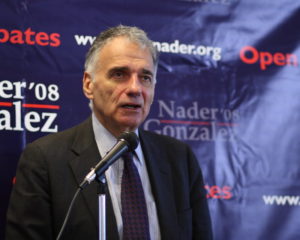
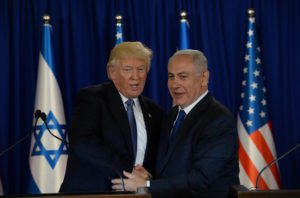
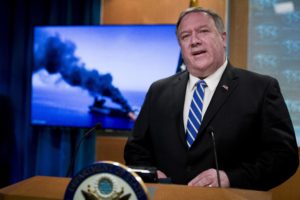
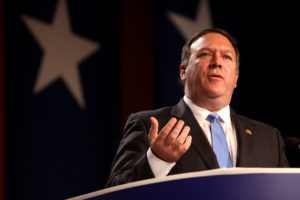
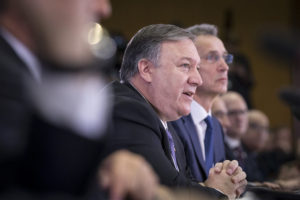
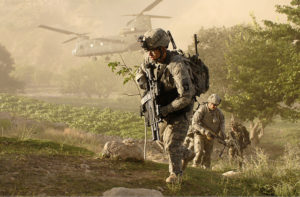
You need to be a supporter to comment.
There are currently no responses to this article.
Be the first to respond.